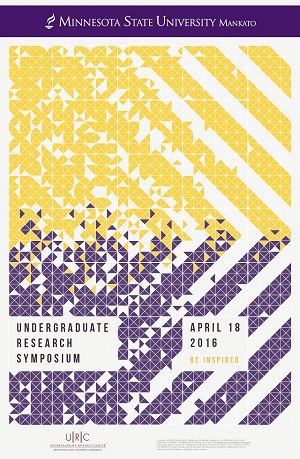Psychological Comprehension
Location
CSU Ballroom
Start Date
18-4-2016 2:00 PM
End Date
18-4-2016 3:30 PM
Student's Major
Psychology
Student's College
Social and Behavioral Sciences
Mentor's Name
Karla Lassonde
Mentor's Department
Psychology
Mentor's College
Social and Behavioral Sciences
Description
Misconceptions have been heavily investigated with an emphasis on identifying false beliefs. One known method for knowledge revision is to provide learners with refutation information about misconceptions. A refutation explains that a misconception is false and then provides scientific information describing why. Across numerous experiments, we have found that student’s knowledge for common psychological misconceptions can be revised after reading refutation-style texts in the lab. However, one potential limitation is the reading skill level of students. Students with high reading skill are better at maintaining text coherence, making inferences between old and new information, and developing a complete understanding of text. The goal of this study is to determine whether reading skill level influences conditions that attempt to revise psychological misconceptions. Participants first take a survey testing misconception knowledge. Participants then read passages elaborating upon 16 psychological misconception statements on a computer; half of the passages contain information that refutes and explains why a common misconception is false and half do not. Reading speed on sentences that wither directly refute the misconceptions or do not is measured. Time it takes to participants to read these sentences can be used to indicate whether they have integrated new knowledge about the misconception while reading. After, the Gates-MacGinitie (4th ed.) test is administered to assess reading skill. One week later, participants take a final survey assessment to determine whether misconception knowledge is changed.
Psychological Comprehension
CSU Ballroom
Misconceptions have been heavily investigated with an emphasis on identifying false beliefs. One known method for knowledge revision is to provide learners with refutation information about misconceptions. A refutation explains that a misconception is false and then provides scientific information describing why. Across numerous experiments, we have found that student’s knowledge for common psychological misconceptions can be revised after reading refutation-style texts in the lab. However, one potential limitation is the reading skill level of students. Students with high reading skill are better at maintaining text coherence, making inferences between old and new information, and developing a complete understanding of text. The goal of this study is to determine whether reading skill level influences conditions that attempt to revise psychological misconceptions. Participants first take a survey testing misconception knowledge. Participants then read passages elaborating upon 16 psychological misconception statements on a computer; half of the passages contain information that refutes and explains why a common misconception is false and half do not. Reading speed on sentences that wither directly refute the misconceptions or do not is measured. Time it takes to participants to read these sentences can be used to indicate whether they have integrated new knowledge about the misconception while reading. After, the Gates-MacGinitie (4th ed.) test is administered to assess reading skill. One week later, participants take a final survey assessment to determine whether misconception knowledge is changed.
Recommended Citation
Rohloff, Haley and Katelyn Hakinson. "Psychological Comprehension." Undergraduate Research Symposium, Mankato, MN, April 18, 2016.
https://cornerstone.lib.mnsu.edu/urs/2016/poster-session-B/27




